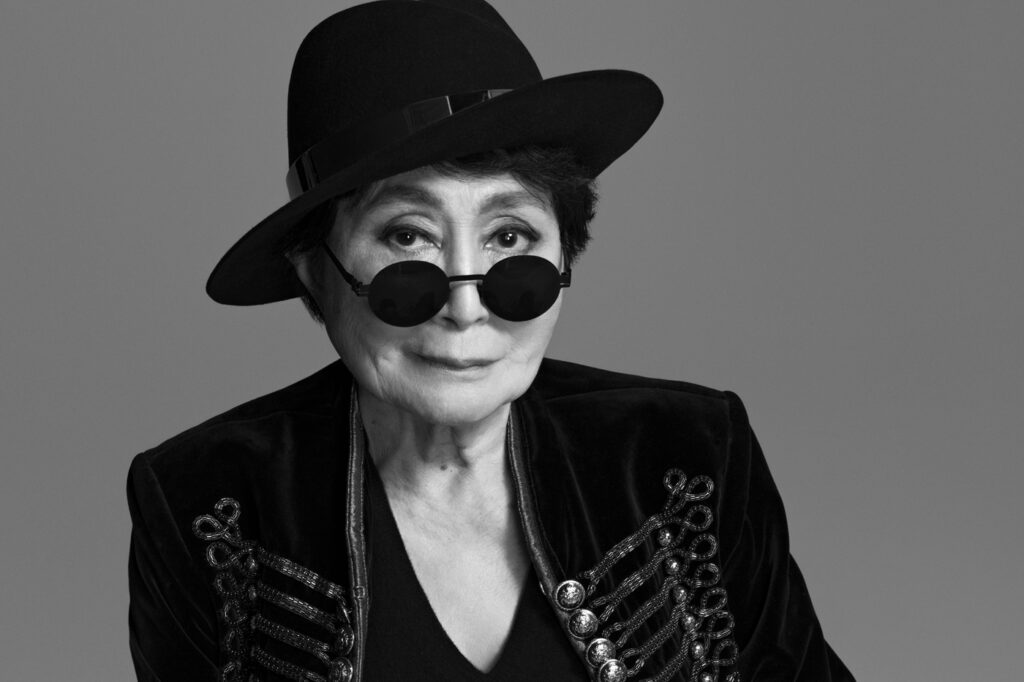
I think most people are ready to admit that Yoko Ono is not the worst person to ever exist. There may be a few of us still clinging to the notion that she was a talentless harpy that broke up the best band ever, but this narrative is out of favor. Even the most traditionalist rock publications (Rolling Stone, Ultimate Classic Rock, etc.) have accepted her into music history, putting out lists of her top songs and best albums. To more liberal presses, she’s become something of an icon. In this narrative, she was an artistic genius victimized by a misogynistic hate mob who resented her avant-garde influence on John Lennon.
There has also been a growing interest in Ono’s music as influential. In 1970, avant-garde music was a strictly classical business. Experimentation was a right reserved to “serious music” and while Stockhausen, Schoenberg, and Cage were celebrities in a certain realm, they were not recording artists, and their influence did extend to pop. Ono was, for many people, their introduction to experimental music. A generation of musicians cited her as an inspiration, from pop music weirdos like the B-52s or Talking Heads to underground celebrities like William Bennet and Meredith Monk.
From indie blogs to the Grammy’s, the press is ready to admit that Ono is important, but they seem hesitant to discuss any of the actual music Ono released. Critics have either focused on her more typical rock releases or simply avoid discussing her music altogether. The New York Times ran a fawning piece defending the place of challenging music that made no reference to any of her actual songs or albums. When Pitchfork reviewed her back catalog, they concluded that her experimental albums were less ambitious and less than her experimental work. When critics dare write less favorable reviews, the assumptions about Ono come into much sharper focus. A Collegiate Times review of her music referred to her 2018 album Warzone as “a stupendously pretentious assemblage of avant-garde schlock,” that “Continues [a] career of meritless prominence.”
What confuses me most about the critical apathy (and occasional antipathy) towards Ono’s music is that it does not extend to music that is clearly influenced by her work. Kate Bush, Tori Amos, Bjork, even Fiona Apple- you don’t have to look far to find popular music that imitates Ono’s vocal style. On the instrumental side of things, it’s easy to imagine a track off of Yoko’s 1971 album “Fly” on a Throbbing Gristle or Captain Beefheart album. All of these musicians are critically adored, and their music is analyzed in great detail, especially their more experimental albums. So why do critics seem so eager to talk around the music of Yoko Ono?
To answer this question, I think it’s helpful to consider how Ono arrived in popular music. While Ono was a celebrated visual artist prior to meeting John Lennon, her marriage to the ex-Beatle meant that before she had even recorded an album, she was probably the fourth most famous artist alive (sorry Ringo), and was able to bypass a lot of music industry gatekeeping as a result. We expect avant-garde music to occur at the fringes, to always be underrated or someone obscure, and we expect prominent musicians to always make music accessible to a wide audience. The Collegiate Times review I quoted earlier makes this explicit, saying that, “‘Warzone’ is simply the latest piece in a long career of failing to reach the heights of an avant-garde frontier of music in hopes of reaching the hearts of people around the world.” The claim that Yoko is trying to reach a mass audience flies in the face of the music itself. Her first two albums are, to put it literally, 45 minutes of a woman wailing over elephant noises. Even her more accessible projects like “Warzone” are still leagues away from the mainstream. Her music clearly has no interest in appealing to a general audience, but because she is famous and on a major label, these expectations are put on her.
The frustrating thing about critical interpretations of Ono’s music, at least to me, isn’t that people don’t like her music- I’m only lukewarm on most of it myself- but that she would receive far different reception were she not a household name. Critical attitudes of popular music have warmed considerably in the last 20 years, but this reevaluation has only extended to the aesthetics of popular music, not to the underlying mechanics. Popular music may be acknowledged as good “in its own way” but it isn’t given equal billing with so-called “serious music.” Yoko Ono is just a little too famous to be taken seriously as an avant-garde artist. Instead, she must be analyzed only in terms of her effects, as the New York Times did, or, as in the case of the Pitchfork review, she must be spun as actually secretly having been a pop musician this whole time. We are still brought up with the deep-seated hipster belief that popular culture is inherently the lowest common denominator. Successful, famous artists like Ono that challenge this narrative are deeply threatening to magazines that make their name by denoting what gets to be taken seriously and what is pop culture trash. She proves that people have wider tastes than they are often given credit for, that fans of independent music are not quite as special as we think we are.
It’s impressive when you think about it, half a century later and Yoko Ono is still scary.
